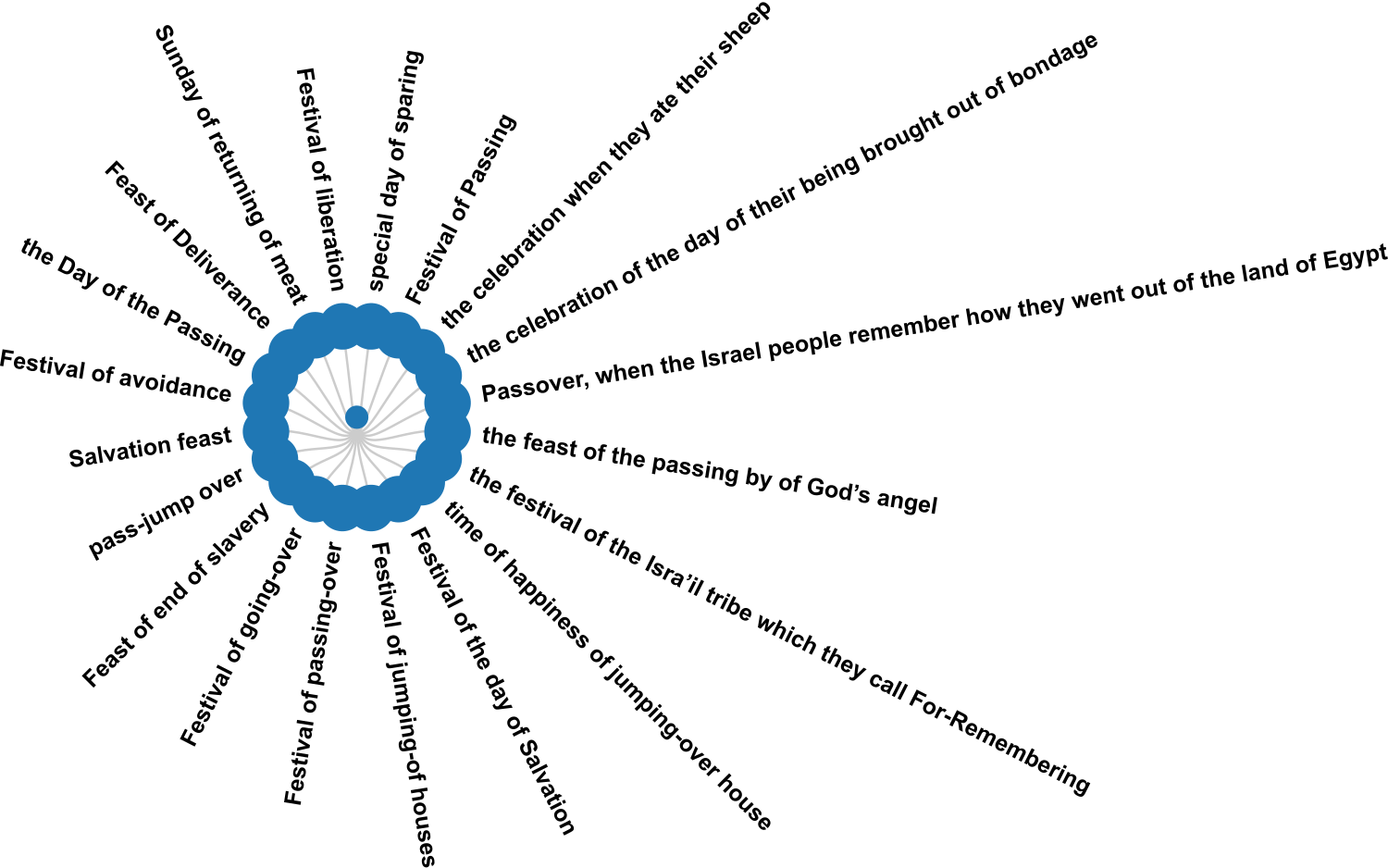Holy Week Through the Eyes of the Languages of the WorldSýnishorn


It's hard for native English speakers to imagine, but English was also once a newly translated language for the Bible. William Tyndale was an early 16th-century translator of the English Bible whose version was used extensively by the translators of the 1611 King James Version. One word he used—along with virtually every Christian and Jewish English Bible translator since—was "Passover," a felicitous word creation by Tyndale. It not only replicates the Hebrew sound of the original Jewish pesah festival that Jesus came to Jerusalem to celebrate, but it also carries the meaning of the English "passing over" of the Hebrew houses that were marked with the blood of a sacrificial lamb to avoid the death of their firstborns. Word artistry of the finest quality!
Let's look at how other languages translate this important word by stepping into the accompanying word cloud that displays some of the back-translations from other languages.
One thing we notice is that the translators clearly had different emphases. While many stress the passing or passing-by aspect that English also highlights, some emphasize the present-day Jewish customs of both New and Old Testament times (like eating sheep or ending the fast before Passover), and some feature something that is common to both Jews and Christians. Wolof, for instance, a language spoken in Western Africa, calls Passover the "Festival of the day of Salvation." Jula, also spoken in Western Africa, uses "Feast of end of slavery."
It is no accident for us that Jesus' death and resurrection coincided with Passover, marking the end to our spiritual slavery through his Easter salvation. Spend some time today thanking Jesus for rescuing us from that bondage, for passing over our bloodied doorways to give us eternal life.
Ritningin
About this Plan

This devotion that is intended to accompany you from Palm Sunday through Easter Sunday presents Jesus as he approaches his death and is glorified in his resurrection in a way you might not have encountered him: Through the words of languages from around the world. Find out how other cultural norms and concepts find their expression in Bible translation and how that can have a deep impact on your own appreciation and understanding of God's love for you.
More








